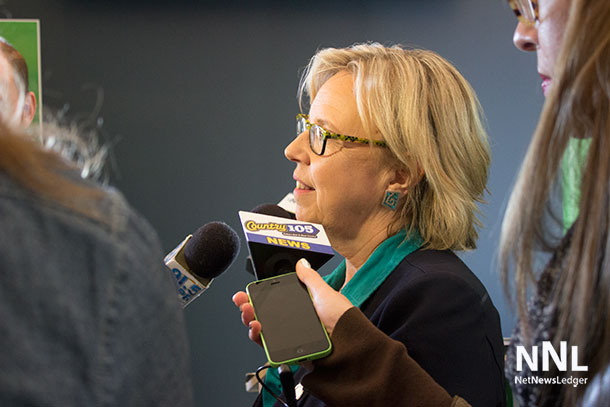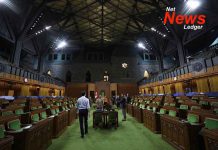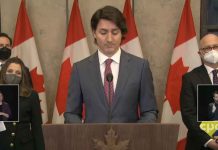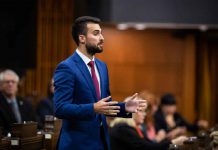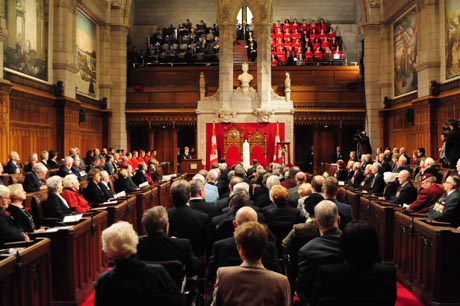
Conservatives Table Legislation to Ensure Fair Elections
OTTAWA – The federal Conservatives have launched a new bill designed to protect the integrity of Canadian elections. Democratic Reform Minister, Pierre Poilievre, introduced the bill in the House of Commons today. The move comes as the RCMP have laid charges against former Conservative Senator Patrick Brazeau, who is currently under suspension, and former Liberal Senator Mac Harb.
“The Fair Elections Act will ensure everyday citizens are in charge of democracy, by putting special interests on the sidelines and rule-breakers out of business,” said Minister Poilievre.
“The bill also makes it harder to break elections law. It closes loopholes to big money, imposes new penalties on political imposters who make rogue calls, and empowers law enforcement with sharper teeth, a longer reach and a freer hand.”
In the House of Commons, the Minister stated the legislation will put those who break the law behind bars.
The Fair Elections Act will implement 38 of the Chief Electoral Officer’s past recommendations.
The Fair Elections Act Backgrounder:
- Protects voters from rogue calls and impersonation with a mandatory public registry for mass calling, prison time for impersonating elections officials and increased penalties for deceiving people out of their votes.
- Gives law enforcement sharper teeth, a longer reach and a freer hand. “Sharper teeth” means allowing the Commissioner to seek tougher penalties for existing offences. “Longer reach” means empowering the Commissioner with more than a dozen new offences to combat big money, rogue calls and fraudulent voting. Finally, a “freer hand” means the Commissioner will have full independence, with control of his or her staff and investigations, and a fixed-term of seven years, so he or she cannot be fired without cause.
- Cracks down on voter fraud by prohibiting the use of vouching and Voter Information Cards as replacements for acceptable ID. Studies commissioned by Elections Canada demonstrate mass irregularities in the use of vouching and high rates of inaccuracy on Voter Information Cards. Voters will still have 39 forms of authorized ID to choose from to prove identity and residence.
- Makes rules easy-to-follow for all. Since the last election, the Commissioner has had to sign 15 different compliance agreements with those who have breached elections law. Some are due to honest mistakes. Members of all parties have noted that the rules can be unclear. Complicated rules bring unintentional breaches and intimidate everyday people from taking part in democracy. That is why the Fair Elections Act will make the rules for elections clear, predictable and easy-to-follow.
Parties will have the right to advance rulings and interpretations from Elections Canada within 45 days of a request (a service similar to one provided by the Canada Revenue Agency). Elections Canada will also be required to keep a registry of interpretations and provide for consultation with and notice to parties before changing them.
- Allows small donations in, and keeps big money out. Big money from special interests can drown out the voices of everyday citizens. That is why our laws strive to keep it out. The Fair Elections Act will ban the use of loans to evade donation rules. However, the Fair Elections Act will allow parties to better fund democratic outreach with small increases in spending limits, while imposing tougher audits and penalties to enforce those limits. It will let small donors contribute more to democracy through the front door and block illegal big money from sneaking in the back door.
The Fair Elections Act’s modest adjustments in the donation limit (to $1,500) and election spending limits (up 5%) will let parties raise their own funds to reach out to Canadians. The total ban on union and corporate money remains.
- Respects democratic election results. Members of Parliament and the Chief Electoral Officer (CEO) sometimes disagree on an MP’s election expense return. When that happens, the Canada Elections Act provides that the MP can no longer sit or vote in the House of Commons, until the expense return is changed to the CEO’s satisfaction. The removal of a democratically-elected MP reverses the decision of tens of thousands of voters. The Fair Elections Act will allow an MP to present the disputed case in the courts and to have judges quickly rule on it, before the CEO seeks the MP’s suspension.
- Upholds Free Speech. The Supreme Court has unanimously ruled that the ban on premature transmission of election results infringes on freedom of expression. The Fair Elections Act repeals this ban and upholds free speech.
- Provides better customer service for voters by focusing Elections Canada advertising on the basics of voting: where, when and what ID to bring. Also, the Fair Elections Act would explicitly require Elections Canada inform disabled voters of the extra help available to help them vote. The Act will also establish an extra day of advance polling. The proposed change would give Canadians access to four advance polling days – the 10th, 9th, 8th and 7th days before Election Day.
“The Fair Elections Act will make our laws tough, clear and easy-to-follow,” said Minister Poilievre. “It will make life harder for election law-breakers, and put the focus back on honest people taking part in democracy.”
Green Party Unimpressed
The Green Party of Canada is unimpressed, Democratic Reform Critic Bruce Hyer voiced its disappointment with the Conservatives’ new ‘Fair Elections Act’, unveiled this morning by Pierre Poilievre, Minister of State for Democratic Reform.
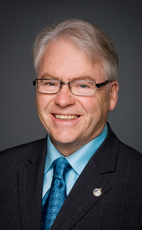
Hyer stated that “The Fair Elections Act does nothing to tackle the real issues facing Canadian democracy.”
“If the Conservatives were serious about electoral reform, we would be talking about ending First Past the Post and introducing Proportional Representation, reforming our unelected and unaccountable Senate, and ending the practice of having party leaders sign off on candidates’ nomination forms,” said Hyer. “Unlike Michael Chong’s important Reform Act, this is just rearranging deck chairs on the Titanic.”
Under the new Act, which is purportedly aimed at combatting election fraud and reducing barriers to voting, Elections Canada will no longer enforce the Elections Act, and instead will serve in a purely administrative role. The investigation of elections fraud would become the responsibility of the office of the public prosecutor.
The Act would also end the practice of “vouching” for voters without proper ID at the polling station.
“To improve voter turnout, we should repeal all the changes, including the photo ID requirement, that make it harder for young people, First Nations, the poor, and seniors to vote. We need better voter enumeration in advance,” said Elizabeth May, Leader of the Green Party of Canada and Member of Parliament for Saanich–Gulf Islands. “In Canada, our problem isn’t people voting more than once, it’s people voting less than once.”





